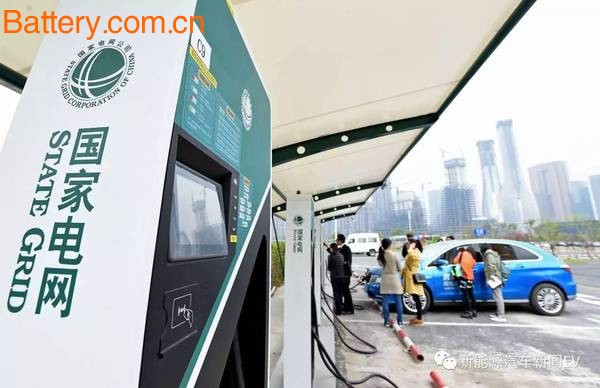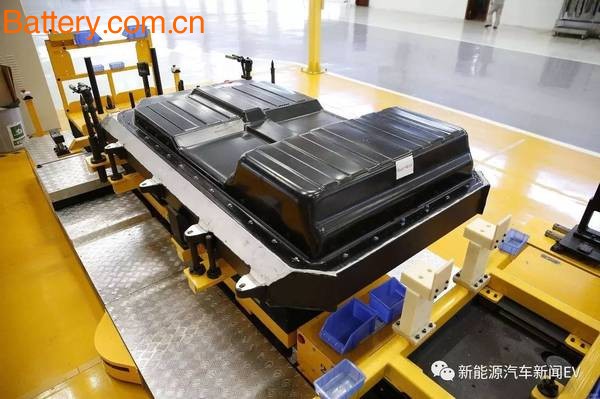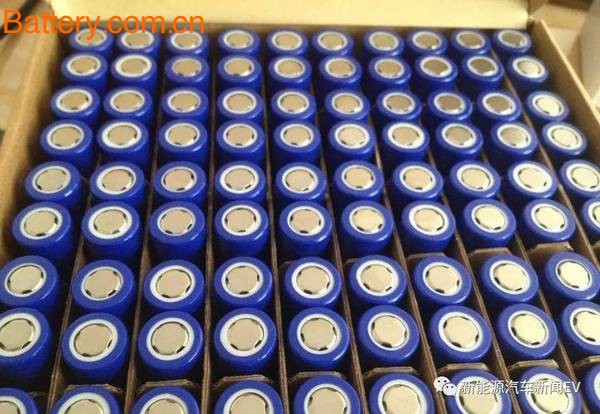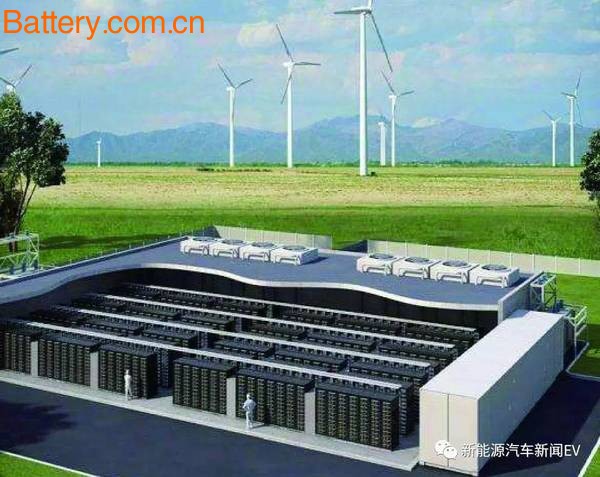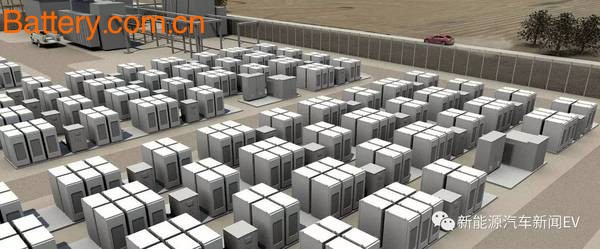Retired power battery has no profit recycling and it is a "pseudo-proposition"
According to the data, the cumulative output of power batteries in 2016 was about 25.25 billion watt-hours, and the total amount of actual demolition and recycling was less than 10,000 tons. Nearly 84% of the scrapped batteries were still stuck in the hands of car companies. Recently, the Ministry of Industry and Information Technology, the Ministry of Commerce, and the Ministry of Science and Technology jointly issued the "Guiding Opinions on Accelerating the Development of Renewable Resources Industry" (referred to as "Guidance Opinions". Among them, the issue of recycling of new energy power batteries, which has received much attention, has been included in the major pilot demonstration project. The opinion pointed out that for the demonstration of recycling of new energy power batteries, the focus is on the development of new energy vehicles such as Beijing-Tianjin-Hebei, Yangtze River Delta and Pearl River Delta, and selected cities to carry out pilot demonstrations of recycling of new energy vehicles' power batteries . It is understood that this is the first pilot work carried out by the state on the recycling of power batteries, and this work will be gradually oriented to the whole country, just like the promotion of new energy vehicles. At present, the recycling of power batteries is mainly done by car companies, battery manufacturers or third parties. The reality is that it is too early to practice recycling projects because the corresponding technical rules for recycling and the corresponding economic problems have not yet been resolved. Battery recycling is a "pseudo-proposition" The debate on the issues related to the recycling of power batteries has long been a topic of commonplace. Nowadays, new energy vehicles are gradually entering the stage of recycling. However, compared to a large number of actual needs, the power battery that is actually included in the recycling project is neglected. According to the data, the cumulative output of power batteries in 2016 was about 25.25 billion watt-hours, and the total amount of actual demolition and recycling was less than 10,000 tons. Nearly 84% of the scrapped batteries were still stuck in the hands of car companies. Under normal circumstances, driving a new energy vehicle will need to face the problem of changing power in about 5 years. For high-frequency use vehicles such as taxis and buses, the demand for power exchange is even more urgent. Previously, the China Automotive Technology and Research Center predicted that by 2020, China's electric vehicle power battery cumulative scrap will reach 120,000 to 170,000 tons. However, in the face of such a huge recycling market, China's power battery recycling project is no match. The "Guidance Opinions" show that the recycling of power batteries needs to establish a traceable management system through information technology such as the Internet of Things and big data, support the establishment of a universal and economical recycling model, and carry out cascade utilization and reuse technologies. Research, product development and demonstration applications. But in fact, the recycling of power batteries requires quite high technical requirements. At present, the relevant standards for power recycling have not been unified, and most power battery manufacturers have few power battery recovery, disassembly and re-use capabilities. In general, technical shortcomings are currently a problem that cannot be ignored. If the technology is not up to standard, then directly related to the recycling of power batteries has become a complete "pseudo-proposition." Retired battery is not profitable Last year, the Ministry of Industry and Information Technology and the National Development and Reform Commission jointly issued the "Technical Policy for Recycling and Utilization of Electric Vehicle Power Battery", which clearly defined the main body of responsibility for the first time. Can be roughly understood as: who is responsible for who produces, who pollutes who governs. This means that power producers and car manufacturers have an indelible responsibility for the issue of power battery recycling. However, the current power battery recycling project is a hot potato, both sides are afraid of it. In order to realize the recycling of power batteries, it is necessary to make a clear economic account. It should be known that after the recovery of the general power battery, a series of inspection procedures are needed to determine the residual rate of the product to determine whether it needs to be recycled or reused. For power battery companies, they believe that because the power battery has been sold to the car companies, the recycling costs should be the responsibility of the car companies. However, the car companies believe that the battery has been consumed, even if it is recycled, the two parties should share the cost. The two sides have been in the dispute stage for this issue. In addition, how to judge the prospect of decommissioned batteries is also a difficult problem. Due to the different residual rate of decommissioned power batteries, some batteries may enter the recycling stage directly, enter the recovery pool, undergo a series of processes such as dismantling, and finally extract the available metal elements as raw materials for battery production. Some decommissioned batteries can enter the recycling stage, but due to the difference in efficiency that can be used, this has caused a lot of trouble for recycling pricing. It can be seen that the necessity of establishing a value evaluation system for decommissioned batteries. More importantly, the economic benefits brought by the current recycling of decommissioned batteries are not obvious. Previously, Dr. Wang Yueli of Ningde Times New Energy Technology Co., Ltd. told the New Energy Vehicle News that this was mainly subject to Retired batteries have less market capacity and the cost of recycled retired batteries is huge. Due to the complexity of power battery ladder utilization and recycling, not all power batteries can be recycled and reused. “Once there is a mistake in the intermediate link that destroys the deconstruction of the battery, there is no value for reuse.†The cost of this aspect also needs to be considered. Battery recycling is implicated in used car market The cost of recycling used batteries is quite high, and it is even more difficult to find the threshold of relevant qualifications. Among them, the role of car companies is essential. At present, it is understood that only a few car companies such as BAIC, BYD, Qichen and Tesla have introduced new energy vehicle redemption plans, the purpose of which is to provide a recycling channel for power batteries. However, the problem of the flow of these redeemed vehicles is not as good as expected. For example, some of the vehicles that Beiqi New Energy will purchase for the replacement will be left in the factory. For vehicles with low usage rate, the power battery will be reprocessed, and the power will rarely enter the disassembly and utilization. BYD is testing the recovered vehicles, and more is to recycle vehicles into the used car market. In fact, current new energy vehicles are not favored in the used car market. "New Energy Auto News" visited the used car market and learned that except for Tesla, almost no other new energy vehicles were seen. The reason why the new energy used car is so cold, the reason still needs to be attributed to the unstable performance of the power battery, and needs to face recycling and other issues. As the driving time is longer, the degree of depreciation will be higher, which directly causes the consumer to ignore it. However, some car companies have indicated that the decommissioned power battery will be handed over to a third-party recycling agency. With their technical advantages and experience, they are a good place to retired batteries. According to "New Energy Auto News", there are only a few companies with recycling and utilization qualifications on the market, and because of the different products of various power battery companies, there is no effective detection method for all power batteries. It brings certain difficulties to the testing process. For the power battery industry, although the recycling project has many complexities, the country has developed corresponding development plans to promote the development of this market. As more and more batteries are about to retire, how to continue to use them in the next life cycle, then the urgency of the market. This makes it faster to establish a power battery recycling system and become a key element in the development of power batteries this year. CPU For Rubber Roller Castor Wheel Pu Casting Gear Wheel,Custom Prepolymer For Wheel,Cpu For Tyres Wheel,Polyether Tdi Prepolymer XUCHUAN CHEMICAL(SUZHOU) CO., LTD , https://www.xuchuanpu.com